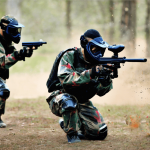The diplomatic influence of UK sports on international relations
UK sports diplomacy operates as a powerful example of British sports soft power, shaping global perceptions subtly yet effectively. Historically, the UK has leveraged its rich sporting heritage to foster goodwill and strengthen international relations. Sports such as cricket, rugby, and football, deeply embedded in British culture, have served as diplomatic bridges, facilitating communication and cooperation between nations.
The international relations impact of UK sports is evident when examining how sporting achievements enhance the UK’s global image. Victories on the field project resilience, teamwork, and excellence—values that resonate diplomatically. For instance, the widespread appeal of football clubs with international fanbases creates shared cultural experiences, helping to ease tensions and build connections.
In parallel : How Does UK Sports Influence Local Economies?
Moreover, UK sports diplomacy extends beyond the pitch by promoting mutual respect through organized matches and tournaments that often involve international teams, nurturing collaboration. This form of soft power allows the UK to maintain a positive presence on the world stage while engaging in non-political dialogue.
In conclusion, the diplomatic influence of UK sports operates both symbolically and practically, as sport becomes a universal language through which the UK promotes peace, understanding, and cooperation globally.
Also to read : Experience the best deals on briliantz gel blasters now!
The diplomatic influence of UK sports on international relations
UK sports diplomacy stands as a strategic facet of British sports soft power, intertwining historical tradition with modern international relations impact. Since colonial times, sports like cricket and rugby have been tools for fostering respect and communication between the UK and other nations. This use of sports as a diplomatic asset continues to resonate strongly today.
Sporting achievements, such as England’s successes in football and rugby, play a pivotal role in shaping the international relations impact of UK sports. These achievements project core national values—resilience, unity, and fair play—that influence foreign perceptions positively. Consequently, victories become more than mere trophies; they symbolize the UK’s dedication to excellence and international cooperation.
UK sports diplomacy also benefits from cross-border exchanges, where national teams engage globally to build mutual understanding. This practice underscores how British sports soft power leverages competitive spirit in promoting global friendship. Overall, through deliberate sporting initiatives, the UK strengthens its diplomatic ties by translating athletic performance into cultural and political connectivity.
The diplomatic influence of UK sports on international relations
UK sports diplomacy harnesses the nation’s rich sporting heritage as an effective tool of British sports soft power in international affairs. It extends well beyond entertainment, becoming a vital instrument in advancing the UK’s cultural and political interests globally. The international relations impact of UK sports is deeply rooted in history, tracing back to the British Empire when sports like cricket introduced shared customs among diverse populations, laying groundwork for diplomatic engagement.
Sporting achievements serve as powerful symbols of the UK’s values abroad. Successes in football, rugby, and cricket communicate resilience, fairness, and unity, shaping positive foreign perceptions. These achievements transcend the sports themselves, helping to enhance the UK’s standing in international forums and fostering goodwill between peoples.
Moreover, UK sports diplomacy operates through organized international competitions, tours, and collaborations that promote mutual respect and dialogue. This form of engagement uses the universal appeal of sport to bridge cultural divides, making it an effective soft power strategy. Through sustained sporting excellence and open exchange, the UK continues to build influential diplomatic relationships that support its wider foreign policy goals.
Major sporting events and their role in global diplomacy
UK-hosted sporting events serve as prominent instruments of UK sports diplomacy, amplifying the nation’s influence in international relations. Events like the London 2012 Olympics and Wimbledon act as platforms where British sports soft power directly intersects with diplomatic engagement. These occasions attract global attention, offering unique opportunities for cultural exchange and international cooperation.
Hosting such events fosters partnerships between governments, sports organizations, and international bodies. For instance, the Commonwealth Games promote unity across diverse nations with historical connections to the UK, reinforcing diplomatic ties while celebrating shared heritage. The Olympics further elevate the UK’s profile by showcasing its organizational capabilities and dedication to inclusive, peaceful competition.
Crucially, these events stimulate local and global economies through sports tourism, while broadcasting the UK’s values worldwide. The international relations impact extends beyond the competition itself; dialogue and collaboration initiated during these events contribute to long-term diplomatic goodwill. The UK’s ability to host large-scale sporting initiatives demonstrates how UK sports diplomacy leverages high-profile tournaments to strengthen its role on the world stage.
The diplomatic influence of UK sports on international relations
UK sports diplomacy functions as a strategic extension of British sports soft power, deeply influencing international affairs. Historically, sports such as cricket and rugby have served as cultural connectors, fostering dialogue and goodwill between the UK and other nations. These sports provided an early framework for promoting respect and communication, elements still vital in today’s diplomatic landscape.
The international relations impact of UK sports is evident in how sporting achievements shape foreign perceptions. Successful performances by national teams showcase qualities like resilience, unity, and fairness, amplifying the UK’s positive image overseas. This perception contributes to stronger bilateral ties and smoother diplomatic engagement.
More broadly, UK sports diplomacy facilitates ongoing cultural exchange through international matches and tours. These events act as forums for mutual understanding and trust-building, enabling countries to interact beyond political or economic contexts. By combining historical legacy with contemporary sporting excellence, UK sports diplomacy effectively leverages soft power to maintain and enhance the United Kingdom’s global influence.
The diplomatic influence of UK sports on international relations
UK sports diplomacy acts as a significant form of British sports soft power, influencing international relations by extending beyond mere competition. Historically, UK sports have been instrumental in nurturing diplomatic connections, often serving as vehicles for cultural dialogue. For example, cricket introduced during imperial times created a shared cultural fabric, fostering respect between nations and enhancing the UK’s diplomatic reach.
The international relations impact of UK sports is prominently seen in their ability to shape perceptions of the UK. Sporting achievements by English teams epitomize key values such as resilience and fairness, which translate into positive global impressions. These perceptions assist in cultivating trust and goodwill essential for diplomatic interactions.
Moreover, sports function as informal channels for engagement. Matches featuring international teams in the UK, coupled with grassroots programs involving youth from diverse backgrounds, promote intercultural understanding directly. This dynamic illustrates how UK sports diplomacy operates through both historical legacy and contemporary sporting success to strengthen the UK’s position on the global stage, reaffirming sport as a pillar of international relations.


